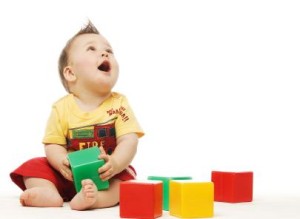 If you’re interested in exploring a career in psychology, you may want to know more about developmental psychology. While there are many foci within the general field, specialization of study will assist you in channeling your scholastic efforts. The subfield of developmental psychology is perhaps one of the most interesting and integrates many different domains of human experience. Below, we’ll explore in greater detail what that entails.
If you’re interested in exploring a career in psychology, you may want to know more about developmental psychology. While there are many foci within the general field, specialization of study will assist you in channeling your scholastic efforts. The subfield of developmental psychology is perhaps one of the most interesting and integrates many different domains of human experience. Below, we’ll explore in greater detail what that entails.
Capturing the Why’s of Human Life
Over the course of their lifespans, humans experience many changes – they taste new foods, relocate for work or family, start a family, have disagreements with coworkers, get into traffic accidents, and much more. Developmental psychology takes all of these events and stimuli into account. Originally, the subfield focused exclusively upon the period of childhood, during which so much dramatic growth occurs and in which many vivid experiences impact how we are shaped as individuals.
However, now it has been expanded to examine the entire lifespan, from birth to death, because it’s been acknowledged that a human personality is dynamic and can exhibit plasticity throughout adulthood. In light of this, you might wonder precisely upon what this aspect of the discipline focuses. Psychologists specializing in this area will examine the aforementioned domains of humankind – physicality, psychology and cognitive neurology, emotional expression and enactment of cultural morality, and even the individual response to broad-spectrum social change. In many cases, psychologists will refine their focus to examine only a few of these domains within a certain life period or culture.
Because developmental psychology doesn’t simply pertain to analysis of quantitative and qualitative data, but seeks to explicate the larger trends and motives that underpin behavior, there’s a large body of research to consider. Studies that describe the range of development of specific types within ranges of socioeconomic status, age, and even regions or nation states form a detailed backdrop against which psychologists can compare individual findings and small sample group analysis.
Types of Broad Questions
If you elect to pursue an education in developmental psychology, the general types of problems with which you’ll grapple are some of the most fascinating. They include:
- Stability vs Change: Do characteristics remain constant or are they subject to alteration over time? Will a shy child remain shy into adulthood?
- Early vs Late Life Experiences: How can we best evaluate the import of experience at various stages of life? Are early childhood stimuli more impactful or can experience as an adult exert as much impact on personality traits?
- Continuous vs Discontinuous: Is human development a continuous process, with a superposition of new experience building directly upon earlier experience? Or is it an interrupted process, with new behaviors and understandings emerging without such a pattern?
- Nature vs Nurture: How much of a human personality is due to inherent personality features and how large is the role played by external environmental stimuli?
Related Resource: Become a Music Therapist
There are so many fascinating questions to explore within this area of the discipline. In many ways, it offers researchers an opportunity to bring together many considerations that have long been held apart by division within the school of psychology. Developmental psychology employs a holism in approach that introduces the possibility of novel understanding of the human being at every phase of life. Broad-spectrum research provides a background with utility for comparison, and multivalent analysis allows scholars to address questions of deep importance to our understanding of how people become themselves.
 Follow
Follow